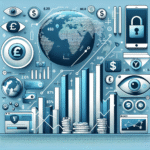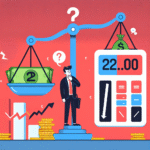Understanding the Dark Web and Its Role in Financial Data
What Is the Dark Web?
Financial Data on the Dark Web: An Overview
How Financial Data Is Acquired and Sold
Sources of Data Breaches
Marketplaces and Forums
Types of Data Traded
- Credit Card Information: Card numbers, expiration dates, CVV codes, and billing addresses.
- Bank Account Details: Login credentials for online banking accounts.
- Personal Identifiable Information (PII): Names, Social Security numbers, addresses, and phone numbers used for identity theft.
- Insider Financial Data: Confidential reports, earnings projections, or insider trading tips.
- Crypto Wallet Keys: Private keys to access various cryptocurrency holdings.
The Impact of Dark Web Financial Data on Markets
- Market Manipulation: Traders with access to insider information or hacked financial data may spread rumors or execute trades to influence prices artificially.
- Fraudulent Activities: Scammers use stolen data to commit identity theft and siphon funds, skewing market statistics and impacting investor confidence.
- Cybersecurity Risks: Companies and financial institutions face threats from persistent attacks aimed at stealing data or sabotaging operations.





